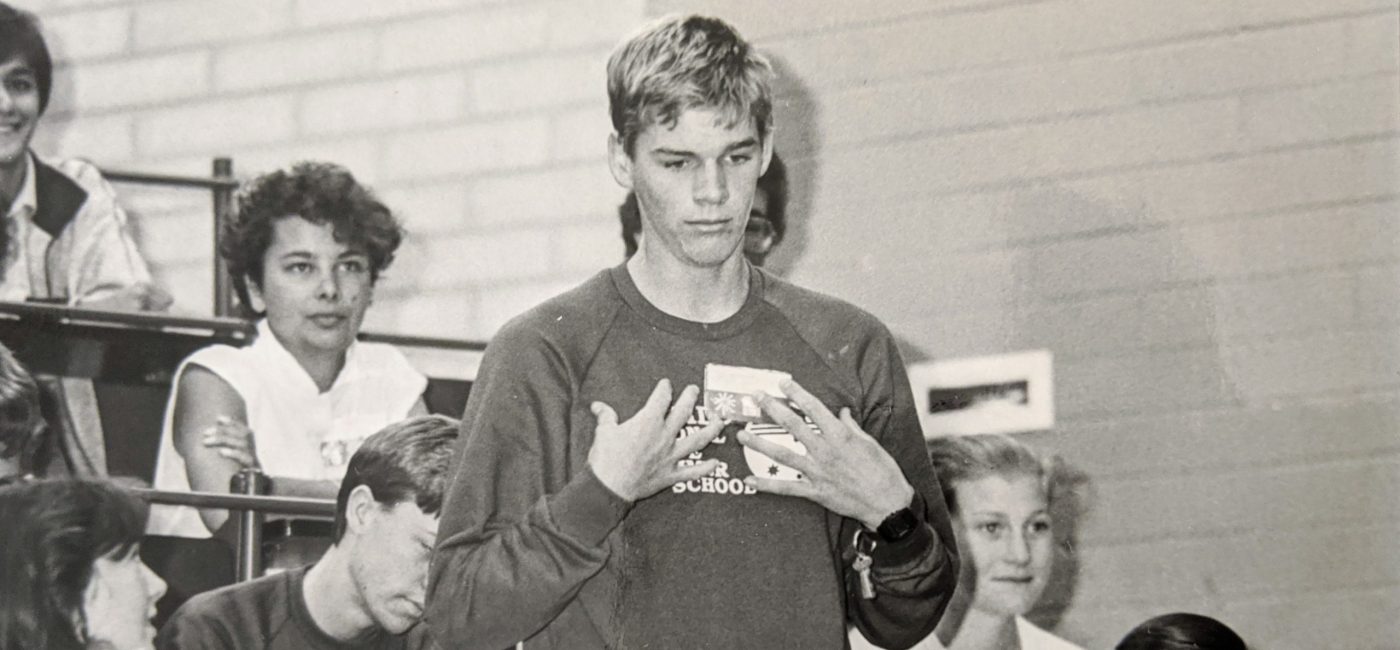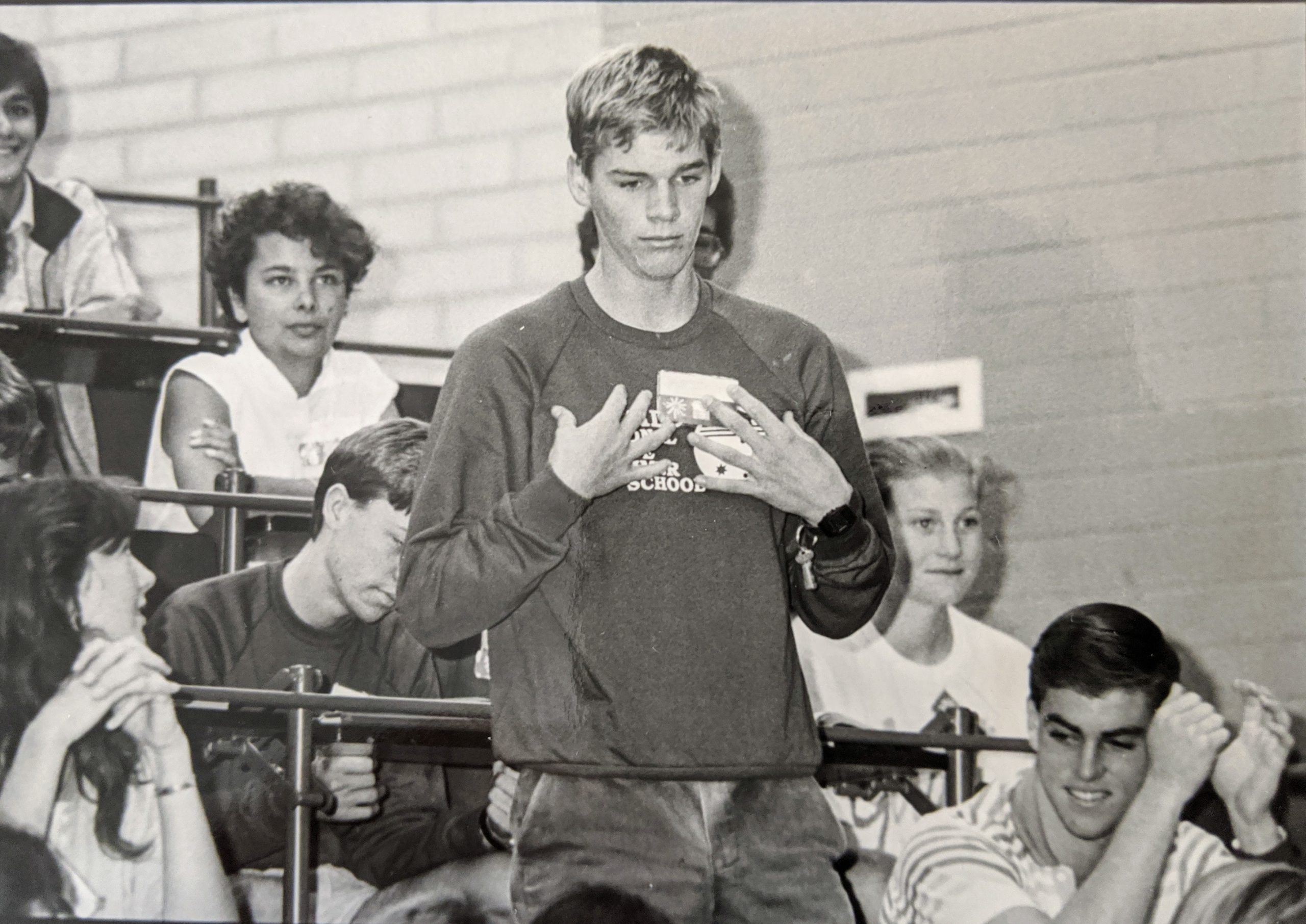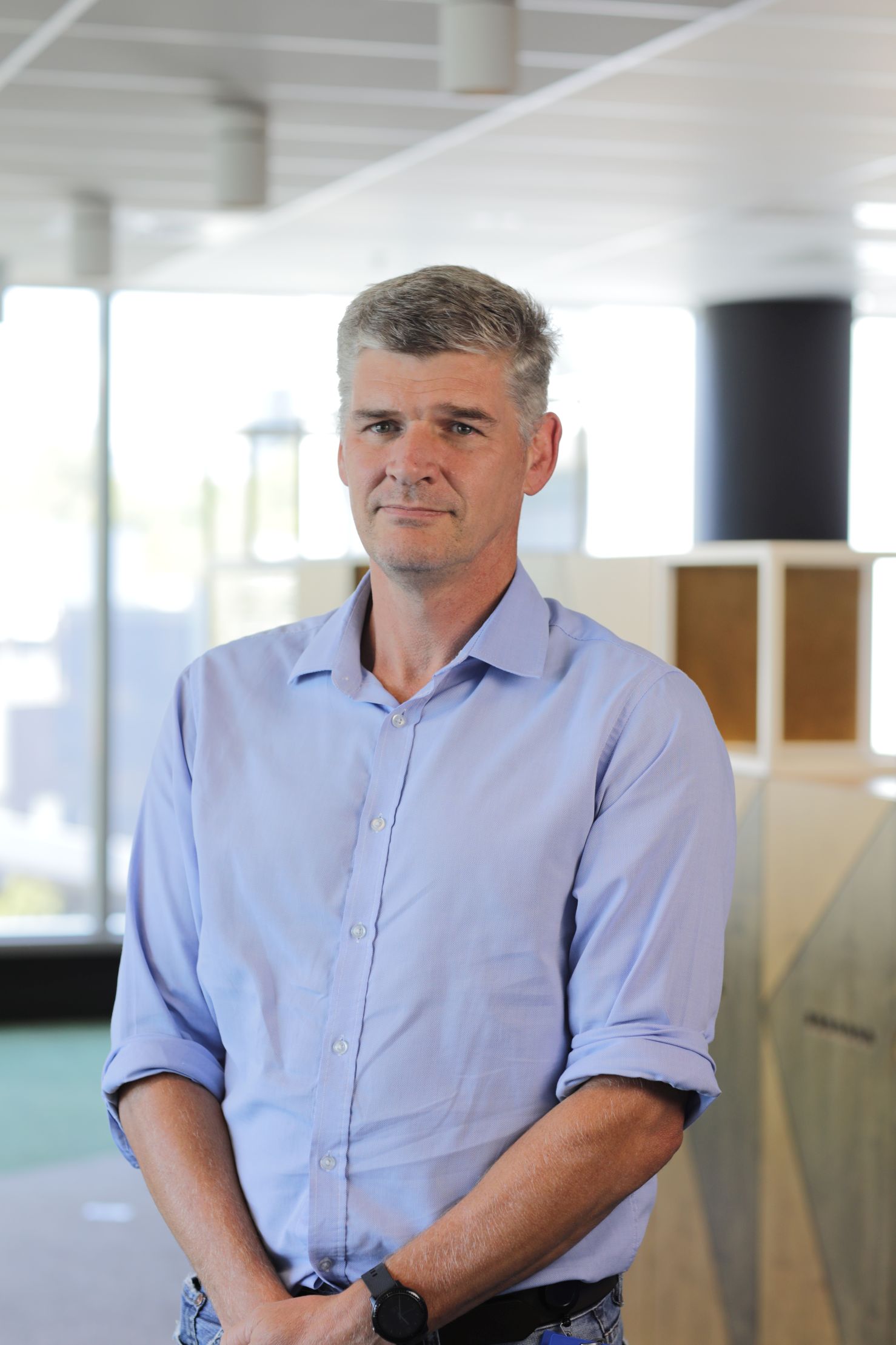
There are so many memories of those 2 weeks, of friends made and dreams shared, but there is one particular memory that I would like to tell you about.
"What next?" The dreaded question that every high school or university student is inevitably asked. NYSF 1987 Alumnus David Monaghan reminisces about how this simple question on the NYSF Year 12 Program changed his thinking, and his future.
I’m going to let you in on a little secret. I still wonder what I’m going to be when I grow up. Now I attended the NYSF Year 12 Porgram (or National Science Summer School) back in 1987 (I’ll let you do the maths) so you’d think I’d have it figured out by now.
But I haven’t.
A little history. I grew up on dairy farm near Nowra, on the NSW South Coast. My Dad was a Rotarian, and he came home one night and told me about this science school he’d heard about at a meeting. I liked science so I applied and got in (I think the entrance criteria was probably way easier back then!). Right up to the point of stepping onto that coach to Canberra, I thought I pretty much knew what I was going to do with my life. Two weeks later, well I imagine most of you reading this probably understand what I’m talking about, but my plans were completely turned upside down and inside out.

A trip to Orroral Valley Laser Tracking Station found me riding shotgun in a Kombi van with the then director of the NSSS. Halfway up a mountain track, wrestling with the gears he turned to me and said, “So David what’s next?" I began to give my stock standard answer that satisfied grandparents and school career advisors. He cut me short, “No no no, imagine you’ve got your PhD, what next?”
PhD? I didn’t remember that being part of my stock standard answer. Long pause. “I’m going to get a PhD?”
“Of course you are; it’ll teach you how to learn stuff and solve problems.” was the reply. Here, another grinding of gears that I swear sounded like gearbox had dropped out on the road. “So then what will you do?”
Longer pause from me. “Umm…?” This was going well.
“Good,” was the reply.
OK, unexpected, but whilst not realising it at the time, a life changing conversation.
The only other thing I remember about that trip was the guy running the tracking station burnt a hole in his lab because he turned the laser on before he opened the roof.
Long story short, I went to university, studied physics, and graduated with a PhD in computational fluid dynamics. The 8 years I spent gaining my degrees taught me all sorts of things, most of which I’ve forgotten, but what really counted is during that time I honed my ability to learn and my ability to problem solve.
As befitting a freshly minted PhD graduate, I had a post-doc all lined up at a computational fluid dynamics research school. Overnight, though, a change in government policy saw that position evaporate. Walking down a corridor the next day in a bit of a haze I bumped into the Professor of Biophysics. “David,” he said, picking himself up, “I’ve got a little start-up company that creates monoclonal antibodies from electrofusion. We need someone to help out for a couple of months. Interested?”
Did I know anything about the human immune system? Nope. Could I program in C++? Hmmm, I knew some FORTRAN. Could I calculate the effect of FM frequency electric fields on cell membranes. Not yet, but I was willing to give it a shot.
“Good,” was the reply, “See you next week.”
That professor was fully aware I knew nothing about monoclonal antibodies, probably had his doubts I could spell it, but he did have faith in my ability to learn and solve problems. I ended staying on with that company for nearly 10 years. I learnt a bunch of new stuff and solved a stack interesting problems, eventually ending up as a research manager.

From monoclonal anti-bodies I went into ink-jet printer compression algorithms at CiSRA, Canon’s Australian research company. I learnt new stuff, and I solved new problems. Then I got into augmented reality and after that image processing. Finally, 15 years later I finished up at CiSRA as the research co-ordinator, assisting in setting strategy for Canon’s next generation of products.
Today, through yet again another unique chain of circumstances, I find myself as the Managing Director of a start-up company that is working to provide fashion retailers with a new and unique way of viewing fabrics online. I raise funding, manage the finance, draft legal documents, write grant proposals, set strategy, and make coffee. Oh, and I get to help create some exciting cutting-
edge technology as well. Was I fully qualified to be a Managing Director going in? Nope. But I’m learning.
That conversation in a Kombi van all those years ago changed my way of thinking for the rest of my life. That conversation sent me down a path that helped me understand that providing I could learn stuff and solve problems, opportunities would present themselves. As long as I was willing to back myself and sell my ability to learn I could go places that kid off the dairy farm would never have
dreamt of.
Do I know what’s next for me? Nope. Good.